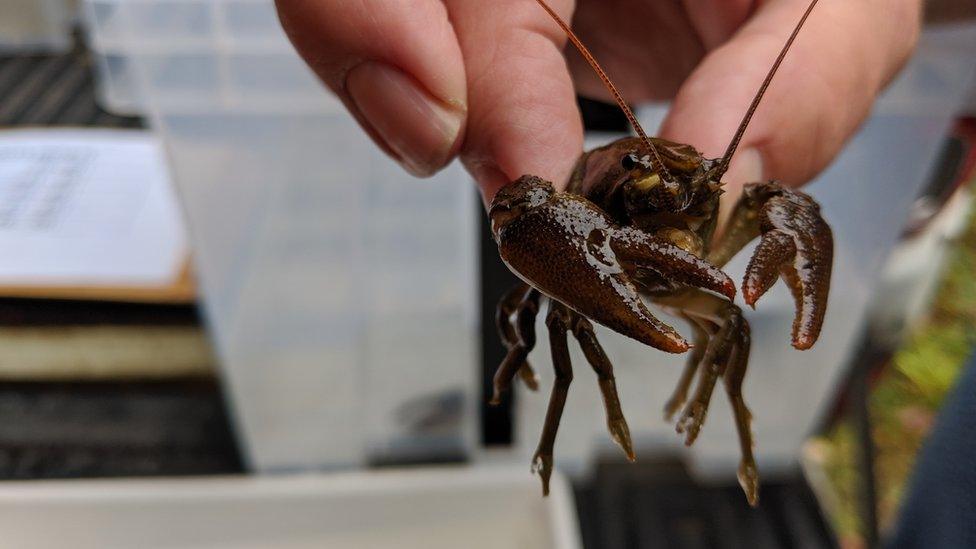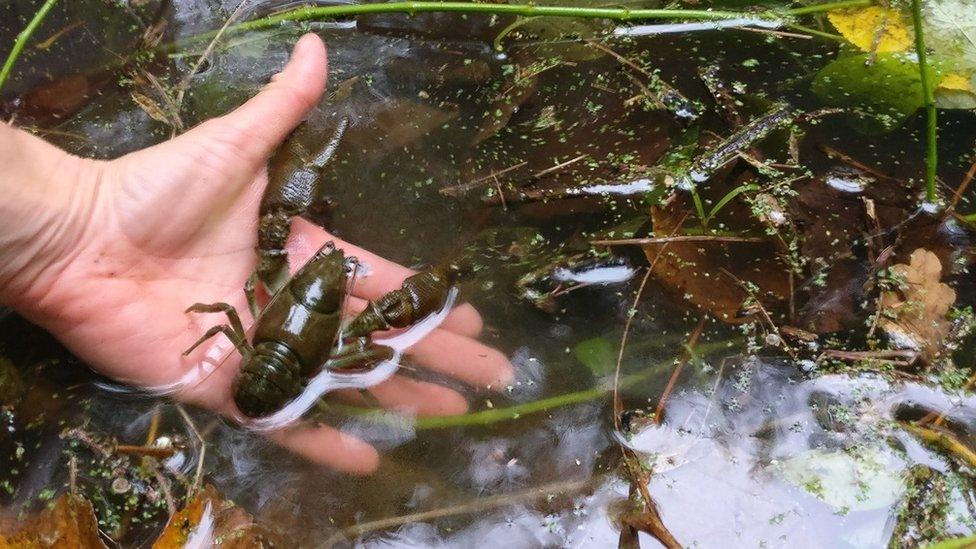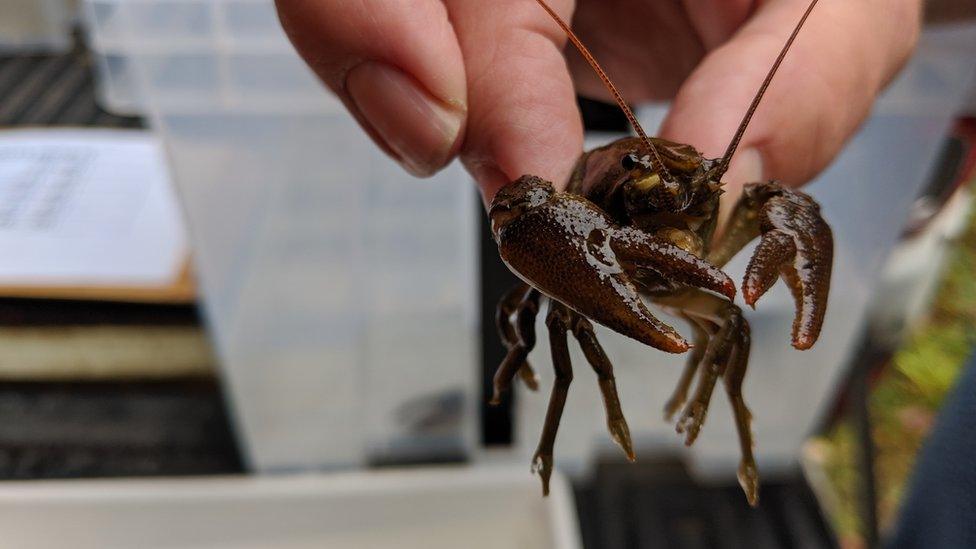Gloucestershire crayfish plague kills thousands in new outbreak
- Published

White-clawed crayfish are a protected species as they are in decline
Thousands of white-clawed crayfish have died after a plague outbreak, the Environment Agency has confirmed.
After the native crustaceans died in the Forest of Dean, tests were carried out to establish the cause.
An Environment Agency spokesperson said: "In addition to the downstream spread of the plague into Cinderford brook the plague has moved more slowly upstream within Soudley ponds."
Crayfish plague is not harmful to other animals or humans.
The white-clawed crayfish is a UK protected species as it is in decline, external.
Tests on the dead creatures were carried out at the Centre for Environment, Fisheries and Aquaculture (CEFAS).
The plague is transferred through the water and was brought into the UK by the invasive American signal crayfish, which is immune to the disease.
"The remaining population appears plague-free but is extremely vulnerable to inadvertent contamination via walkers or animals," added the spokesperson.
People are being asked to stay clear of rivers and waterways, and to also keep their dogs and horses away as the disease can spread easily.
"The disease can be transferred to white-clawed crayfish in other parts of the catchment via water and mud on items like damp clothes, footwear, equipment or any machinery, or by dogs, horses and livestock that have recently entered any contaminated waters.
"To help limit the risk of further spread, we're working with Natural England, the Forestry Commission and other partners to share warning and informing messages."
People are being asked not to touch or handle any dead crayfish and report them to the Environment Agency instead.

Soudley Brook is one of the areas where crayfish were found dead

Follow BBC West on Facebook, external, Twitter, external and Instagram, external. Send your story ideas to: bristol@bbc.co.uk , external
- Published22 August 2021

- Published23 April 2021

- Published5 November 2019
